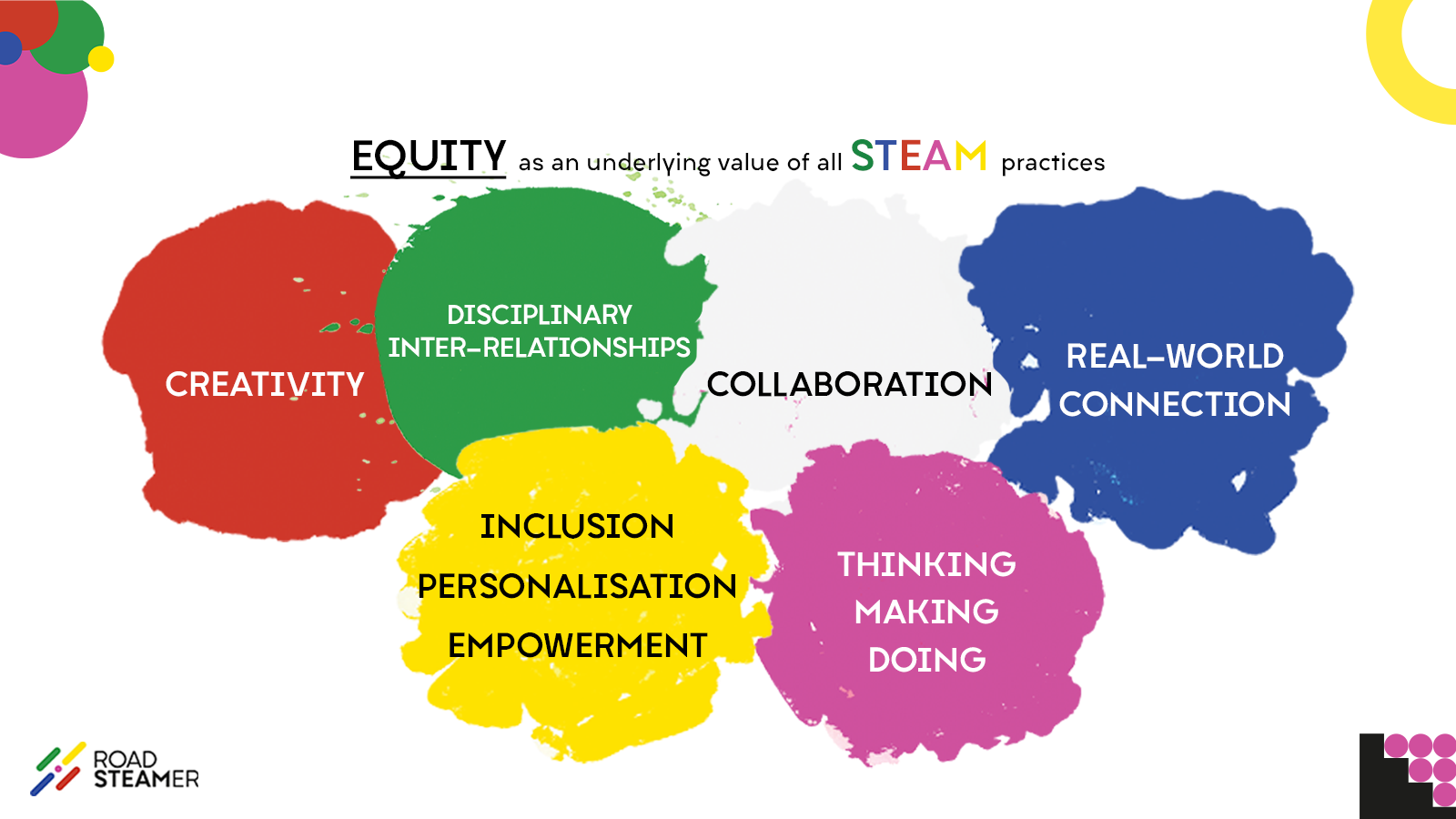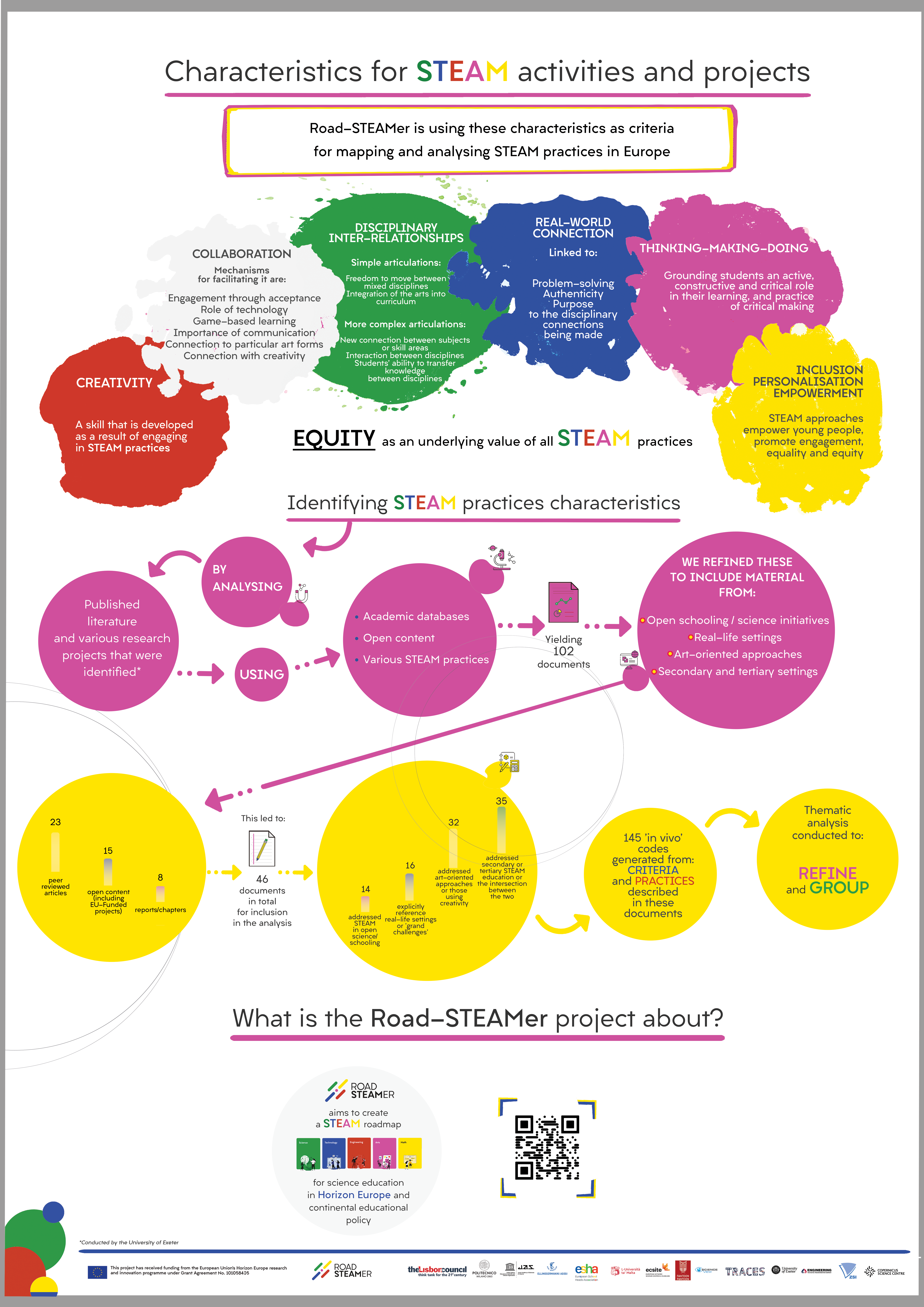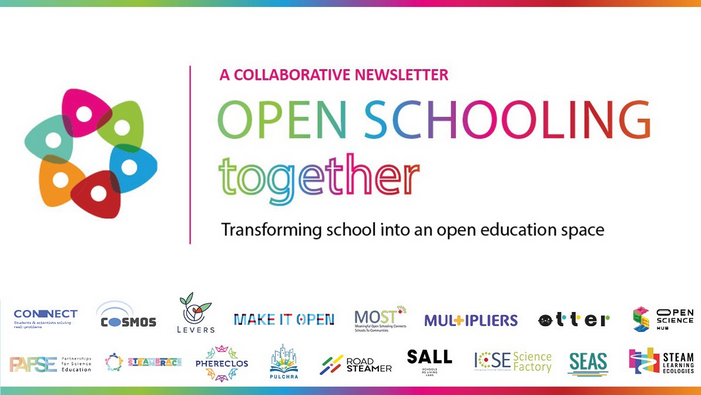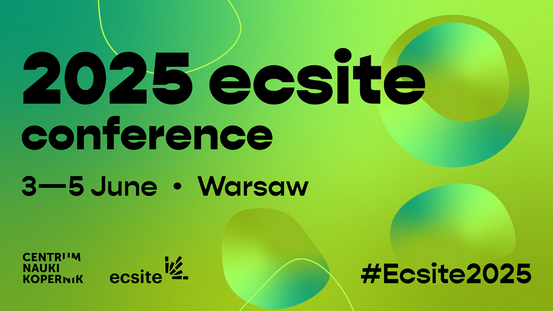This infographic offers an initial outline of a set of criteria the Road-STEAMer project has identified to map and analyse STEAM practices in Europe.
To achieve this, the project team used the participatory methodology at the heart of the Road-STEAMer project. Both published literature and published projects were identified for inclusion in the analysis using a combination of literature searching and contributions from colleagues across the consortium. These were analysed thematically and categorised according to key areas of interest identified for the project to ensure relevance to the focus areas of open science-open schooling, the role of the Arts, the boundary between secondary and tertiary education, and the interaction with the real world.
Following an initial in-depth analysis, a co-creation workshop was held, which was used to refine and clarify the criteria to be used in the next steps of the project.
Equity was identified as an underlying principle and value that supports all STEAM practice and is therefore an all-pervading criterion. The key criteria were identified as Collaboration, Disciplinary inter-relationships, Thinking-making-doing, Creativity, Real-world connection and Inclusion/Personalisation/Empowerment. You may read the full analysis on criteria for STEAM here.




